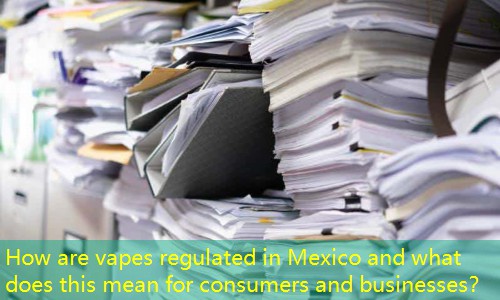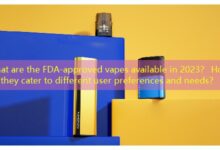The Legal Status of Vapes in Mexico
In recent years, the use and regulation of vaping products have generated significant discussion worldwide, and Mexico is no exception. The legal landscape surrounding vapes in Mexico is multifaceted, influenced by public health policies, societal debates, and international trends. Understanding the current legal framework regarding vaping is essential for users, manufacturers, and policymakers alike.
1. History of Vaping Legislation in Mexico

The journey of vaping regulation in Mexico began in the early 2000s when electronic cigarettes first emerged as an alternative to traditional smoking. Initially, there were minimal restrictions, allowing for a wide market presence. However, by 2014, the Mexican government began to acknowledge the need for regulation due to rising health concerns associated with vaping. This led to a series of debates and legislative actions aimed at controlling the sale and distribution of vaping products.
2. Current Legal Framework
As of now, vapes are technically not illegal in Mexico, but their regulation is stringent. The Mexican government enforced a ban on the sale of e-cigarettes and vape liquids in 2021, aiming to prevent underage access and mitigate health risks. Consequently, despite the absence of a complete prohibition, the commercial availability of these products is highly restricted.
3. Health Regulations and Public Safety
The primary motivator for the regulatory actions on vaping is public health. According to the Ministry of Health, there is substantial concern regarding nicotine addiction and potential health outcomes linked to vaping. The government has cited studies suggesting risks, particularly among youth who may use vaping as a gateway to smoking. As a result, health authorities have prioritized educational campaigns to raise awareness about these risks.
4. Enforcement and Compliance
Enforcement of the vaping regulations has become a significant focus for law enforcement agencies, which are tasked with monitoring the illegal sale of vaping products. Reports indicate that there have been numerous confiscations of vaping devices and liquids in various establishments across Mexico, underscoring the government’s commitment to curbing unauthorized sales and protecting public health.
5. Impact on Consumers and Businesses
The tightening of regulations has had profound implications for consumers and retailers. For consumers, the difficulty in acquiring legitimate vaping products has led many to turn to black market options, which come with unregulated quality and safety risks. Meanwhile, businesses that relied on the sale of vaping products have faced significant financial strain, often resulting in closures or a pivot to alternative products.
6. International Perspective and Comparison
When comparing Mexico’s approach to vaping with other countries, discrepancies become apparent. In the United States, for example, vaping remains legal but is subject to its own set of regulations at both state and federal levels. Conversely, several countries in Europe have embraced vaping as a less harmful alternative to smoking, implementing measures to promote their use while ensuring quality standards. Mexico’s more restrictive stance diverges from these international trends, sparking discussion on best practices for regulation.
7. Future Outlook
Looking ahead, the future of vaping in Mexico may evolve as public opinion and scientific evidence develop. Ongoing dialogue between stakeholders, including health professionals, government officials, and the vaping community, will likely shape forthcoming legislation. It is essential for all parties to engage in discussions that not only address health concerns but also consider individual freedoms and market dynamics.
8. Summary of Key Points
In conclusion, vaping in Mexico occupies a complex legal and regulatory space, marked by restrictive measures aimed at protecting public health. Although vapes are not outright illegal, their sale and distribution face significant limitations resulting in unintended consequences for consumers and businesses alike. The ongoing evolution of regulations and societal attitudes toward vaping suggests that stakeholders must remain vigilant and responsive in navigating this multifaceted issue. Insights from international practices should be considered as Mexico continues to refine its approach to vaping and public health.








